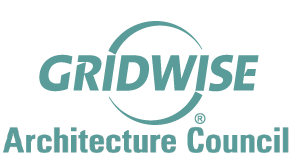The GWAC Transactive Energy Systems Conference 2020
Transactive energy systems with a focus on the ongoing transformation to a participatory grid, including the following topical categories:
- Drivers of Change – Profound changes to our energy system are being driven by decarbonization, distributed systems, expansion of distributed energy resources, the advancement of related technologies, and now a global pandemic. What are primary drivers of change and where will they impact the future of an integrated grid at all scales? How big will the transformation be in the near and long term?
- Business Models and Value Realization– What does it take to create value for participants? How do different systems assign risk, cost and value to stakeholders? What do our transactive energy systems incentivize? Where should the focus be for the next transactive system implementations?
- Visions for Participation – A future grid will have many transactive systems and may include buildings, microgrids, campuses, smart cities and active residential participation. What models for participation will be possible and necessary?
- Regulation and Policy– How do legislation and regulation support or limit transactive energy implementations today? What’s working well? What changes are needed and what should the industry do to encourage alignment of policy and regulatory measures to create a more flexible and interactive grid?
- System Design and Architecture – What steps are needed to support the transition from a centralized to a decentralized grid based on highly coordinated self-optimization? How does the electric grid integrate with other infrastructures like water and gas through smart buildings and smart cities? How can Grid Architecture accelerate pragmatic action?
- Resilience – Some qualities of the power system by their nature improve the resilience of the system, and these qualities may be provided by transactive or non-transactive systems. What resilience benefits can a flexible and adaptive grid provide by incorporating transactive systems?
- System Implementation Strategies and Examples – In recent years, a number of states, municipalities, utilities, NGO’s and corporations have engaged in putting transactive energy theory into practice around the globe. This topic will revisit some of these implementations, the lessons learned, and discuss the interdependence of the electric grid and the communication networks that are necessary to monitor and coordinate actions on the grid and how to build explicit, well-defined, trust models that define identity, authentication, service-level agreements, and privacy into TE systems.
Conference Day 1 – Tuesday, December 8, 2020
| Session 1 | 8am-10am (PST) |
|---|---|
| Welcome | David Forfia, GWAC Chair |
| DOE Keynote Panel | |
| Speakers | Chris Irwin, Erika Gupta, Alejandro Moreno |
| GWAC Foundational Session | Architecting a Resilient, Transactive Grid |
Drivers of Change Workshop: Profound changes to our energy system are being driven by decarbonization, distributed systems, expansion of distributed energy resources, the advancement of related technologies, and now a global pandemic. What are primary drivers of change and where will they impact the future of an integrated grid at all scales? How big will the transformation be in the near and long term?
| Session 2 | 10:30am - 12:00pm (PST) |
|---|---|
| Moderators | Ron Cunningham, David Forfia |
| What if We Build it and Nobody Comes? | Hal T. Nelson, Portland State U. |
| Transactive Community Microgrids to Share Energy Storage Resources in Portugal | Pedro Moura Univ of Coimbra |
| Pruning the tree, decarbonizing the grid by electrifying and reducing GHG one branch at a time | Tanya Barham, Community Energy Labs |
System Design & Architecture Workshop: What steps are needed to support the transition from a centralized to a decentralized grid based on highly coordinated self-optimization? How does the electric grid integrate with other infrastructures like water and gas through smart buildings and smart cities? How can Grid Architecture accelerate pragmatic action?
| Session 3 | 12:30pm - 2:00pm (PST) |
|---|---|
| Moderators | Gerald Gray, Ron Bernstein |
| Blockchain-Enabled Transactive Energy System Design | Umit Cali, NTNU |
| AI Standards for Transactive Energy | Ken Wacks, Management and Engineering Consultant |
| Large Scale Simulation of a Regional Transactive Energy Marketplace Implementation | Hayden Reeve, PNNL |
Conference Day 2 – Wednesday, December 9, 2020
System Implementation Strategies & Examples Workshop:In recent years, a number of states, municipalities, utilities, NGO’s and corporations have engaged in putting transactive energy theory into practice around the globe. This topic will revisit some of these implementations, the lessons learned, and discuss the interdependence of the electric grid and the communication networks that are necessary to monitor and coordinate actions on the grid and how to build explicit, well-defined, trust models that define identity, authentication, service-level agreements, and privacy into TE systems.
| Session 1 | 8:00am - 9:30am (PST) |
|---|---|
| Moderators | Aaron Snyder, Stuart McCafferty |
| Price as a metric of Coordination in a Layered Decomposition Approach | Trevor Gionet, Introspective Systems |
| A Game-Theory Based Analysis of the Effects of Energy-Storage System Utility Strategies on the Short-Term Energy Market | Jeet Dhoriyani, LD College of Engineering Renison Macwan, LD College of Engineering |
| Enabling Plug and Play Transactive Energy on Legacy Power Grids | Michael Hammersley, Protocol Labs Research |
Business Models and Value Realization Workshop: What does it take to create value for participants? How do different systems assign risk, cost and value to stakeholders? What do our transactive energy systems incentivize? Where should the focus be for the next transactive system implementations?
| Session 2 | 10:00am - 11:30am (PST) |
|---|---|
| Moderators | Andrew Bordine, Leonard Tillman |
| Reliability and Resilience Considerations for Transactive Energy Systems | Farrokh Rahimi, OATI |
| The Value of Forward Markets for Provision of Building Flexibility to the Grid | David Holmberg, NIST |
| Pricing Capacity - an application of Price Discrimination Strategies to Capacity Markets in the Context of DERS | Sumitrra Ganguli, PNNL |
PAPERS
| Session 3 | 12:00pm - 2:00pm (PST) | |
|---|---|---|
| Virtual Poster Session | Live Chat | |
| Title | Author | Affiliation |
| Compliance Checking for Transactive Energy Contracts using Smart Contracts | Alireza Parvizimosaed, Daniel Amyot | Univ of Ottawa, CA |
| Blockchain based Peer to Peer Energy Trading | Diana Martinez-Trejo | Durham Univ, UK |
| Software Architecture for Residential Prosumer Agents in a Transactive Energy System | David Toquica | Université du Québec à Trois-Rivières, Canada |
| An Estimation Model for the Number of EVs Required to Utilize V2G Technology | William Rinaldi | Indianapolis, IN |
| Allocation Mechanisms in Rationed Markets | Sumitrra Ganguli | PNNL, US |
| Impact of Time-Varying Demand Flexibility on Reserve Prices in Power Distribution Networks | Saptarshi Bhattacharya | PNNL, US |
| Certification of Energy Origin in Electricity Distribution Systems | Ioannis Poursanidis | Joint Research Centre, Ispra, Italy |
| Developing a Blockchain Transactive Energy Control Platform in Lebanon to Transform the New Hampshire Electricity Market | Steffi Muhanji | Dartmouth Univ, US |
| Business Models for Stakeholder Participation in the Future TE World | Kay Aikin | Introspective Systems, US |
| Improving System Resilience through Formal Verification of Transactive Energy Controls | Alan Ransil | MIT, US |
| A Real-Time TE System for Pervasive DERS | Rohan Gupta, Donal O’Mahony | Trinity College, Dublin, Ireland |
| Distributed Energy Resources Parameter Monitoring in Microgrids Using Blockchain and Edge Computing | Javier Campillo | Universidad Tecnológica de Bolívar, Columbia |
| Improving Consumer and Provider Value with Micromarkets using Adaptative Transaction Energy | Toby Considine, William Cox | Cox Software Architects, US |
| EML-CTS—Adaptable Open Source Transactive Energy—Architecture and Implementation | William Cox, Toby Considine | Cox Software Architects, US |
Conference Day 3 – Thursday , December 10, 2020
Resilience Workshop: Some qualities of the power system by their nature improve the resilience of the system, and these qualities may be provided by transactive or non-transactive systems. What resilience benefits can a flexible and adaptive grid provide by incorporating transactive systems?
| Session 1 | 8:00am - 9:30am (PST) |
|---|---|
| Moderators | Ron Ambrosio, Ron Melton |
| Functional Form of Power System Resilience to Facilitate Transactive Energy Systems Design | Sarmad Hanif, PNNL |
| Improving System Resiliency Using Transactive Mechanism for Distributed Black-Start | Bishnu Bhattarai, PNNL |
| Resilience and Opportunity at the Edge through TE | Toby Considine, Executive Director, Energy Mashup Lab |
Regulatory and Policy Workshop: How do legislation and regulation support or limit transactive energy implementations today? What’s working well? What changes are needed and what should the industry do to encourage alignment of policy and regulatory measures to create a more flexible and interactive grid?
| Session2 | 10:00am - 11:30am (PST) |
|---|---|
| Moderators | Kay Aikin, Lorenzo Kristov |
| The Need for a Regulatory Framework for Grid Transformation | Lorenzo Kristov, GWAC |
| Policy Planning for Cost Effective Grid Transformation in TE Systems | Chris Nelson, South Dakota PUC |
| What Regulators Want from Grid Modernization and TE System Proposals | Abigail Anthony, Rhode Island PUC |
Visions for Participation Workshop: A future grid will have many transactive systems and may include buildings, microgrids, campuses, smart cities and active residential participation. What models for participation will be possible and necessary?
| Session3 | 12:00pm - 2:00pm (PST) |
|---|---|
| Moderators | Tanya Barham, Lorenzo Kristov |
| Integrating Economics into Transactive Energy's Theoretical Framework | Lynne Kiesling, Director, Institute for Regulatory Law & Economics at Carnegie Mellon University |
| TE Conceptual Model | Mark Knight, 1898 & Co., part of Burns & McDonnell |
| The Energy Services Interface as a Transactive Interface for EV Grid Service Provision | David Holmberg, NIST |
| Conference Closing Session | David Forfia, GWAC Chair |



